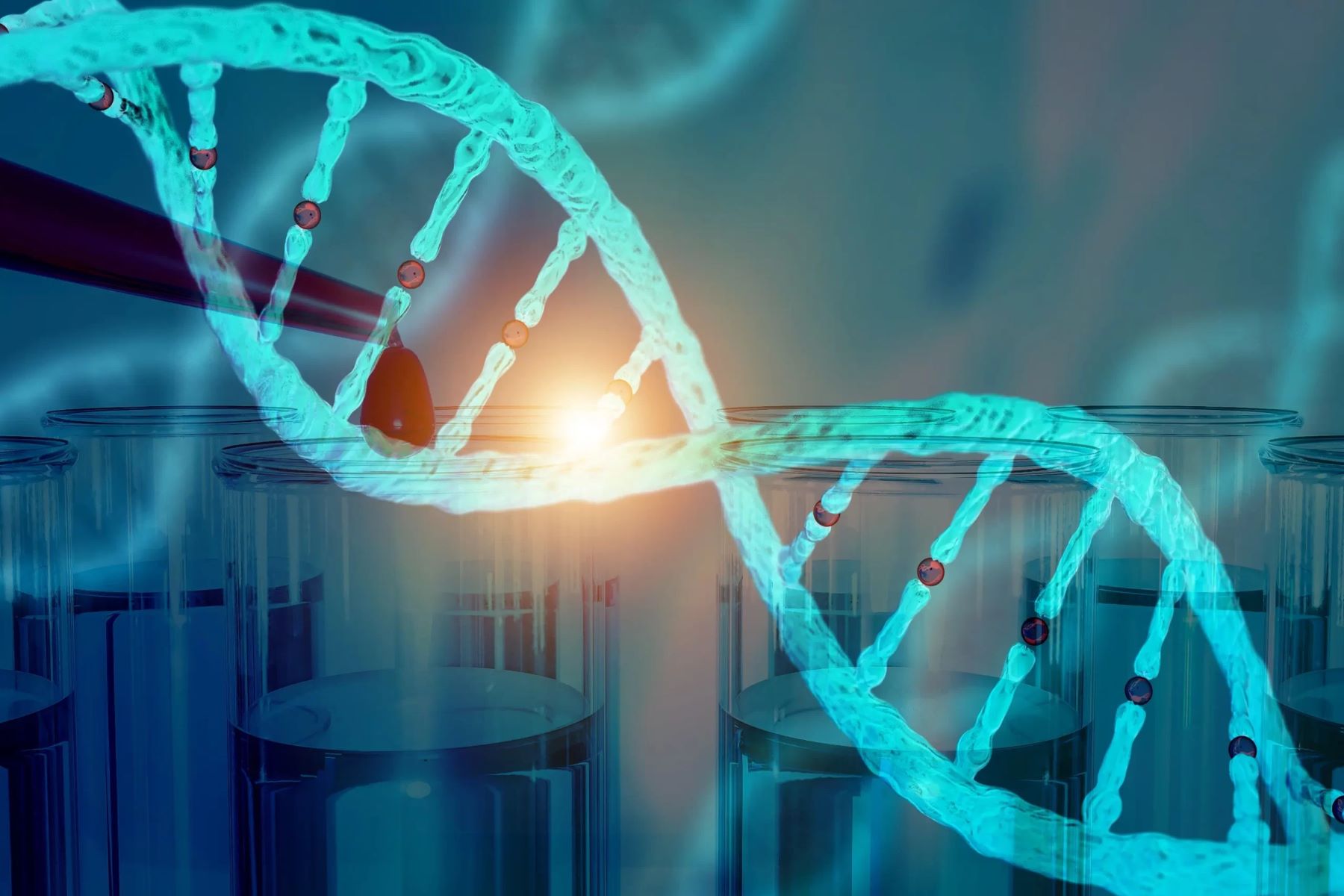
Dihydropyrimidine Dehydrogenase Deficiency (DPD Deficiency) is a rare genetic disorder that affects the body's ability to break down certain substances, including some chemotherapy drugs. This condition can lead to severe reactions when patients are treated with medications like 5-fluorouracil or capecitabine, commonly used in cancer therapy. DPD Deficiency is caused by mutations in the DPYD gene, which provides instructions for making the enzyme dihydropyrimidine dehydrogenase. Without enough of this enzyme, toxic levels of drugs can build up, causing serious side effects. Understanding this deficiency is crucial for safe and effective cancer treatment. Here are 40 facts to help you grasp the essentials of DPD Deficiency.
Key Takeaways:
- Dihydropyrimidine Dehydrogenase Deficiency (DPD deficiency) is a rare genetic disorder that affects the body's ability to break down certain substances, leading to severe toxicity from certain chemotherapy drugs.
- Symptoms of DPD deficiency can vary widely, from developmental delay and seizures to intellectual disability and hypotonia. Early detection through genetic testing and urine tests is crucial for effective management.
What is Dihydropyrimidine Dehydrogenase Deficiency?
Dihydropyrimidine dehydrogenase deficiency (DPD deficiency) is a rare genetic disorder. It affects the body's ability to break down certain substances, including some chemotherapy drugs. Here are some intriguing facts about this condition.
-
DPD deficiency is caused by mutations in the DPYD gene. This gene provides instructions for making the enzyme dihydropyrimidine dehydrogenase, which is crucial for breaking down uracil and thymine.
-
The condition can be inherited in an autosomal recessive manner. This means both parents must carry a copy of the mutated gene for their child to be affected.
-
Symptoms can vary widely. Some individuals may experience severe neurological problems, while others might have no symptoms at all.
-
DPD deficiency can lead to severe toxicity from certain chemotherapy drugs. Drugs like 5-fluorouracil (5-FU) and capecitabine are particularly problematic for those with this deficiency.
-
Newborns can be screened for DPD deficiency. Early detection can help manage the condition and avoid complications from certain medications.
Symptoms and Diagnosis
Understanding the symptoms and how DPD deficiency is diagnosed can help in managing the condition effectively.
-
Common symptoms include developmental delay and seizures. These neurological issues are often the first signs of the disorder.
-
Some individuals may have intellectual disability. The severity can range from mild to severe.
-
Other symptoms include microcephaly and hypotonia. Microcephaly is a condition where the head is smaller than normal, while hypotonia refers to decreased muscle tone.
-
Diagnosis often involves genetic testing. Identifying mutations in the DPYD gene confirms the condition.
-
Urine tests can also be used. Elevated levels of uracil and thymine in the urine can indicate DPD deficiency.
Treatment and Management
Managing DPD deficiency involves avoiding certain medications and addressing symptoms.
-
There is no cure for DPD deficiency. Treatment focuses on managing symptoms and avoiding triggers.
-
Patients should avoid 5-fluorouracil and capecitabine. These chemotherapy drugs can cause severe toxicity in individuals with DPD deficiency.
-
Supportive therapies can help manage symptoms. Physical therapy, occupational therapy, and speech therapy are often beneficial.
-
Regular monitoring is essential. Regular check-ups can help manage the condition and adjust treatments as needed.
-
Genetic counseling is recommended for families. This can help parents understand the risks and implications of the disorder.
Prevalence and Research
DPD deficiency is rare, but ongoing research aims to improve understanding and treatment.
-
The prevalence of DPD deficiency is estimated to be 1 in 10,000 to 1 in 15,000. However, many cases may go undiagnosed.
-
Research is ongoing to develop better diagnostic tools. Improved testing can help identify more cases and prevent complications.
-
Studies are exploring new treatments. Researchers are looking into ways to manage the condition more effectively.
-
Patient registries are being established. These databases can help track cases and improve understanding of the disorder.
-
International collaborations are crucial. Working together, researchers can share knowledge and develop better treatments.
Genetic Aspects
The genetic basis of DPD deficiency is complex and involves multiple mutations.
-
Over 50 different mutations in the DPYD gene have been identified. These mutations can affect the enzyme's function in various ways.
-
Some mutations are more common than others. The IVS14+1G>A mutation is one of the most frequently observed.
-
Carriers of a single mutated gene copy are usually asymptomatic. They do not show symptoms but can pass the mutation to their children.
-
Compound heterozygosity can occur. This means an individual has two different mutations in the DPYD gene, one from each parent.
-
Genetic testing can identify carriers. This is important for family planning and understanding the risk of passing the disorder to children.
Impact on Chemotherapy
DPD deficiency significantly impacts the use of certain chemotherapy drugs.
-
5-fluorouracil (5-FU) is commonly used in cancer treatment. It is particularly effective against colorectal and breast cancers.
-
DPD deficiency can cause severe toxicity from 5-FU. Symptoms include diarrhea, mouth sores, and low blood cell counts.
-
Capecitabine is another drug affected by DPD deficiency. It is an oral chemotherapy drug that is converted to 5-FU in the body.
-
Alternative treatments are available. Patients with DPD deficiency may be given different chemotherapy drugs that do not rely on the DPD enzyme.
-
Dose adjustments can be made. In some cases, lower doses of 5-FU or capecitabine can be used under close medical supervision.
Living with DPD Deficiency
Living with DPD deficiency requires careful management and support.
-
Education is crucial for patients and families. Understanding the condition helps in managing symptoms and avoiding complications.
-
Support groups can provide valuable assistance. Connecting with others who have the condition can offer emotional support and practical advice.
-
Regular medical check-ups are important. Monitoring health and adjusting treatments as needed can improve quality of life.
-
Diet and nutrition may need to be monitored. Some individuals may have dietary restrictions or require supplements.
-
Mental health support is beneficial. Counseling or therapy can help individuals and families cope with the challenges of the disorder.
Future Directions
Research and advancements in genetics hold promise for the future of DPD deficiency management.
-
Gene therapy is being explored. This approach aims to correct the underlying genetic mutations.
-
New diagnostic tools are being developed. These tools can help identify DPD deficiency more accurately and quickly.
-
Personalized medicine is a growing field. Tailoring treatments to an individual's genetic makeup can improve outcomes.
-
Awareness campaigns are increasing. Educating healthcare providers and the public about DPD deficiency can lead to earlier diagnosis and better management.
-
International guidelines are being established. Standardizing care for DPD deficiency can ensure patients receive the best possible treatment.
Final Thoughts on Dihydropyrimidine Dehydrogenase Deficiency
Understanding Dihydropyrimidine Dehydrogenase Deficiency (DPD) is crucial for those affected and their families. This genetic disorder impacts the body's ability to break down certain substances, leading to various health issues. Early diagnosis can make a significant difference in managing symptoms and improving quality of life. Genetic testing offers a clear path to identifying DPD, allowing for tailored treatment plans. Awareness and education about DPD can help reduce the stigma and provide better support for those living with the condition. By staying informed and advocating for proper medical care, individuals with DPD can lead healthier, more fulfilling lives. Remember, knowledge is power, and understanding DPD is the first step toward effective management.
Frequently Asked Questions
Was this page helpful?
Our commitment to delivering trustworthy and engaging content is at the heart of what we do. Each fact on our site is contributed by real users like you, bringing a wealth of diverse insights and information. To ensure the highest standards of accuracy and reliability, our dedicated editors meticulously review each submission. This process guarantees that the facts we share are not only fascinating but also credible. Trust in our commitment to quality and authenticity as you explore and learn with us.


